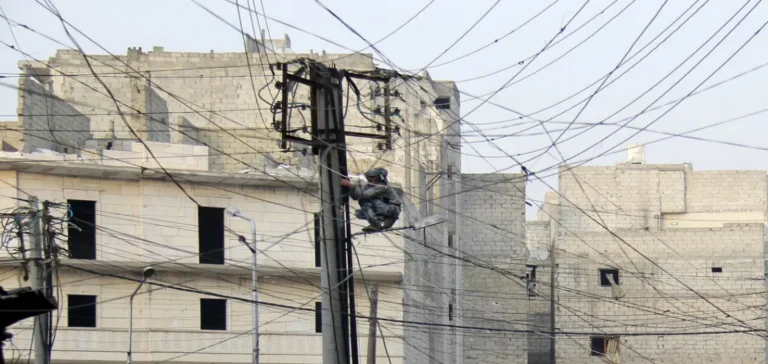The Syrian Ministry of Energy’s decision to increase electricity tariffs drastically, with some bills multiplied by 60, has sent shockwaves across the country. The measure, announced in late October, comes less than a year after President Bashar al-Assad’s ousting and is part of a broader economic liberalisation policy led by the ruling Islamist coalition.
A reform driven by public funding needs
The new authorities justify the increase as a means to finance national reconstruction. After thirteen years of conflict, the World Bank estimates total damage costs at over $216bn. Energy infrastructure was among the most severely affected, with power plants damaged and networks down, leading to blackouts exceeding 20 hours per day in some areas.
For citizens, the end of subsidies translates into an unbearable financial burden. Many now subscribe to private generator services to access electricity, multiplying their monthly expenses. “Our income is limited. If bills are high, we won’t make ends meet,” said a blacksmith in Damascus.
A liberal shift with immediate effects
Economist Jihad Yazigi said the measure reflects a trend of progressive deregulation. According to him, “Syria’s economy, already partially liberal before 2024, is now undergoing full liberalisation.” Authorities have also ended subsidies on staple goods such as bread, further increasing pressure on households.
In major cities, rent and energy costs are reaching comparable levels, driving many families into financial uncertainty. “If my rent is $200 and the electricity bill is between $200 and $400, how am I supposed to cope?” asked a real estate agent in Damascus.
Energy investments not yet delivering results
Interim President Ahmad al-Chareh’s government has announced several regional partnerships to boost production. Qatar has funded a natural gas supply project intended to support Syria’s power generation, with the first phase delivering 400 megawatts via Jordan.
However, these investments have yet to improve daily life. According to the United Nations (UN), nine in ten Syrians live in poverty and one in four is unemployed. “We have electricity for barely one hour a day. This winter, we’ll have to warm up under blankets,” said a Damascus resident.






















